|
MAV'RIC
|
|
MAV'RIC
|
Circular buffer. More...
#include <buffer.hpp>
Public Member Functions | |
| Buffer_T (void) | |
| Constructor. | |
| bool | put_lossy (const T &data) |
| Stores data in the buffer even of it overwrites existing data. | |
| bool | put (const T &data) |
| Stores data in the buffer, until the buffer is full. | |
| bool | get (T &data) |
| Get the oldest element in the buffer. | |
| void | clear (void) |
| Clear the buffer. | |
| uint32_t | readable (void) const |
| Returns the number of available bytes in the buffer. | |
| uint32_t | writeable (void) const |
| Returns the number of free bytes in the buffer. | |
| bool | full (void) const |
| Tests whether the buffer is full. | |
| bool | empty (void) const |
| Tests whether the buffer is empty. | |
| bool | get_element (uint32_t index, T &elem) const |
| Get value of i-th element in buffer, but does not modify anything. | |
Circular buffer.
| S | Size of the buffer (256 by default) |
| T | Type of buffered data (uint8_t by default) |
Clear the buffer.
This function erases the buffer, note that it does not erase all the bytes one by one so the function call is fast
| buffer | Pointer to buffer |

Tests whether the buffer is empty.
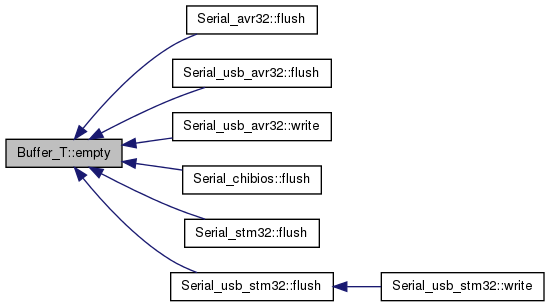
Tests whether the buffer is full.
Get the oldest element in the buffer.
| data | Data read |
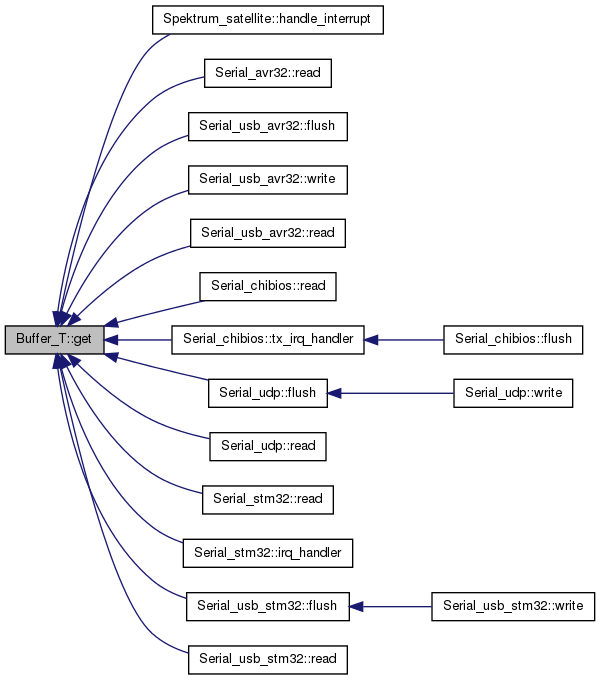
| bool Buffer_T< S, T >::get_element | ( | uint32_t | index, |
| T & | elem | ||
| ) | const |
Get value of i-th element in buffer, but does not modify anything.
| index | Index of the element to read (input) |
| elem | Returned element (output) |

Stores data in the buffer, until the buffer is full.
| data | data to write |
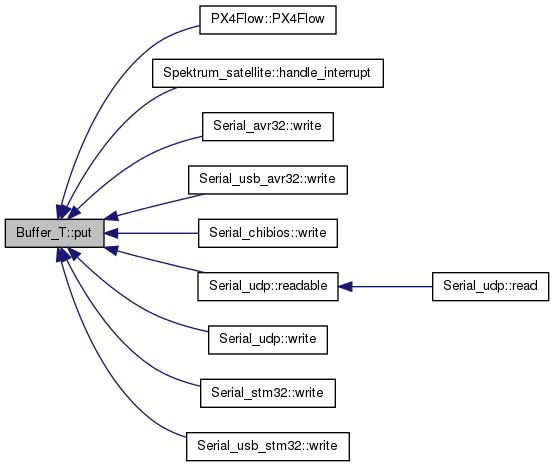
Stores data in the buffer even of it overwrites existing data.
| data | data to write |
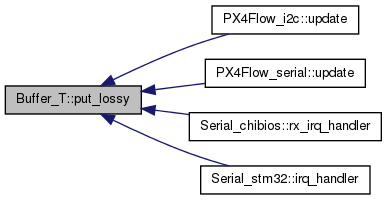
Returns the number of available bytes in the buffer.
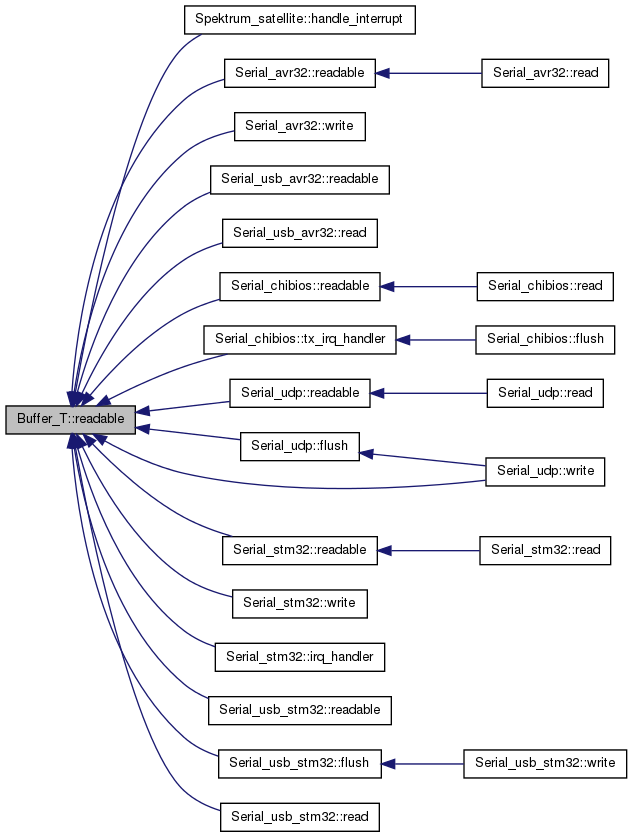
Returns the number of free bytes in the buffer.
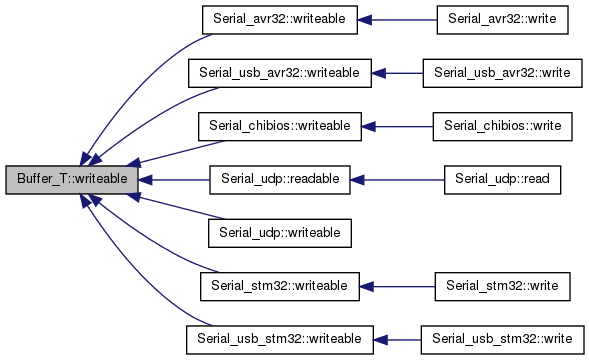
 1.7.6.1
1.7.6.1